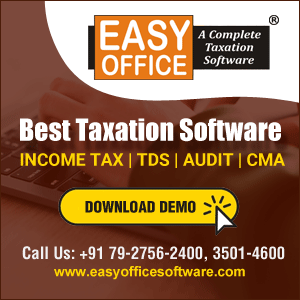In the world of Goods and Services Tax (GST), filing accurate and timely returns is crucial for every registered taxpayer. Timely filing of GST Return is equally important as there are severe consequences not only for the Registered Taxpayer who has missed the deadline but also for the recipient of supplies. Two important GST returns that play a significant role in the GST compliance landscape are Form GSTR-1 and Form GSTR-3B. Form GSTR-1 covers details of outward supplies of goods or services, while Form GSTR-3B is a summary return that includes information about tax liability, input tax credit, and payable tax amount.
Form GSTR-1 is a monthly or quarterly (IFF to be filed monthly but it is voluntary) return that provides a summary of outward supplies made by a registered person. It includes details of taxable outward supplies made to registered persons, taxable outward inter-state supplies made to unregistered persons, zero-rated and deemed exports, and more. Failing to file GSTR-1 can lead to several repercussions:
Ineligibility to claim Input Tax Credit (ITC)
If a supplier fails to file GSTR-1 by the due date, the recipient of goods or services cannot claim ITC for the corresponding period in their GSTR-3B return. This means that the recipient will not be able to offset the tax paid on purchases against their output tax liability, resulting in an additional tax burden. If you fail to file your GSTR-1 on time, the recipient of your supplies will not be able to claim ITC on the invoices that you have issued to them. This can have a significant impact on their cash flow, as they will have to pay the full amount of tax on the goods or services that they have purchased from you.

Discrepancies in GSTR-2A and GSTR-2B
Non-filing of GSTR-1 leads to non-reflection of transactions in the recipient's GSTR-2A and GSTR-2B. Consequently, the recipient may face challenges in matching their purchase details with the supplier's information, leading to reconciliation issues and potential disputes.
Non-compliance with GST Regulations
Failing to file GSTR-1 within the prescribed timeline is considered non-compliance with GST regulations. This can attract penalties, fines, and legal consequences, including the possibility of GST registration cancellation. This can have a devastating impact on the business, as it will no longer be able to collect or claim GST. If your GST registration is cancelled, you will not be able to carry out any business activities in India that are subject to GST.
Late Fees
Late fees are charged for every day that the return is late, and can be significant. The current late fee is Rs. 50 per day per Act, for a maximum of Rs. 5,000 per Act. The late fees for GSTR-1 are cumulative, so the longer you delay filing your return, the more you will have to pay in late fees.
Penalties
The penalties for failing to file GSTR-1 are significant, and they can increase if you have a history of non-compliance.
Conclusion
Filing GSTR-1 and GSTR-3B accurately and within the prescribed timelines is crucial for maintaining GST compliance. Non-filing or late filing of these returns can result in various consequences such as the ineligibility to claim Input Tax Credit, difficulties in reconciliation, penalties, restrictions on e-way bill generation, blocking of GSTR-1 filing facility, and even suspension or cancellation of GST registration. To ensure smooth business operations and avoid legal and financial complications, taxpayers must prioritize timely and accurate filing of GSTR-1 and GSTR-3B. Compliance with GST regulations not only helps businesses avoid penalties but also fosters transparency and accountability in the GST ecosystem.
In addition to these consequences, missing the deadline for filing GSTR-1 can also damage your reputation with your suppliers and customers. It can also make it difficult to obtain loans or credit from banks.
The author of this article is a Practicing Chartered Accountant in Delhi and practices in Litigations, Opinions, etc in GST. He is also Speaker and Trainer in GST.








 CAclubindia
CAclubindia
